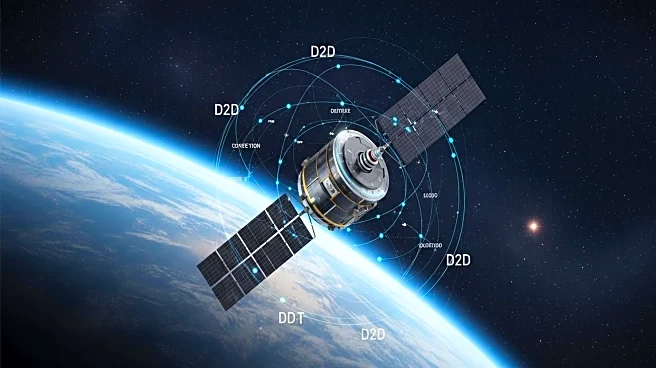What is the story about?
What's Happening?
The global space economy is experiencing significant growth driven by expanding defense budgets and the direct-to-device market, according to Novaspace CEO Pacôme Révillon. Speaking at the World Space Business Week conference, Révillon noted that the space sector is undergoing consolidation, with over 50 mergers and acquisitions annually since 2021. The space economy, valued at $596 billion in 2024, is projected to grow to $944 billion by 2033, largely due to downstream solutions for satellite data. The demand for sovereign space capabilities is broadening, with 89 countries investing in space systems, contributing to a combined budget of $135 billion in 2024. Of this, $73 billion is allocated to defense spending, while $62 billion is for civil space. The adoption of artificial intelligence is expected to transform the industry, with an anticipated 50,000 spacecraft in orbit by 2030.
Why It's Important?
The expansion of the space economy has significant implications for global industries and national security. The increase in defense spending highlights the strategic importance of space capabilities, potentially leading to advancements in military technology and satellite communications. The growth of the direct-to-device market represents a substantial revenue opportunity, with projections of over 300 million monthly subscribers by 2030. This could lead to increased competition among tech companies and satellite providers, driving innovation and potentially lowering costs for consumers. The integration of artificial intelligence in space operations could enhance efficiency and data utilization, impacting sectors such as telecommunications, navigation, and Earth observation.
What's Next?
The space industry is poised for further consolidation and innovation, with new launch vehicle providers expected to emerge in the next five years. As the direct-to-device market expands, companies may focus on developing technologies to capture this growing subscriber base. The continued investment in sovereign space capabilities by various countries could lead to geopolitical shifts and collaborations in space exploration and defense. The role of artificial intelligence in the sector will likely grow, influencing the design, production, and exploitation of space assets.
Beyond the Headlines
The ethical and legal implications of increased military spending in space could become a topic of debate, as nations balance defense needs with international cooperation. The rise of artificial intelligence in space operations may raise concerns about data privacy and security, necessitating regulatory frameworks to protect sensitive information. The environmental impact of launching and maintaining thousands of spacecraft could also prompt discussions on sustainable practices in the space industry.

















